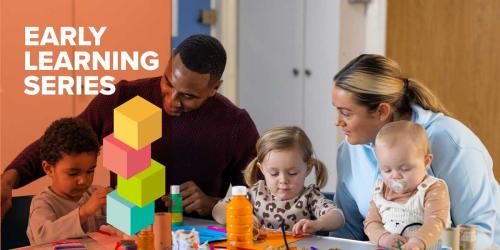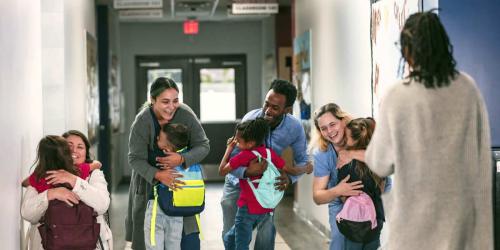SEL Showcase: A Roundup of Our Best Resources

Here is a sampling of the research-based resources and conversations we shared:
Stopping the Spread of Math Anxiety
Math anxiety goes a lot deeper than simply disliking math. Students who experience this form of anxiety have an acutely negative emotional response to situations that involve math. This can affect day-to-day math performance—and keep students from pursuing many (often lucrative) career paths.
A new video from REL Northwest and Washington STEM demonstrates two evidence-based strategies for reducing elementary school students’ math anxiety.
Measuring Social and Emotional Learning
An increasing emphasis on SEL has raised questions about assessment. Capacities such as social skills, self-regulation and self-efficacy present unique measurement challenges.
To help schools as they begin this endeavor, we created a free, two-page guide providing key considerations when it comes to measuring SEL. Karyn Lewis has also written a series of blog posts that give a researcher’s perspective on the contexts in which SEL measurement is valuable as well as guidance on selecting the most appropriate SEL skills to measure and choosing the measurement tools that will work best for you.
Social and Emotional Learning: Where Do You Start?
Nonacademic skills. 21st-century skills. Mindsets, essential skills, and habits (MESH).
These are just some of the terms used interchangeably with SEL skills that include impulse control, perspective-taking and problem-solving.For educators and leaders looking for an entry point into discussions of SEL, we created a primer—”Understanding and Cultivating Social Emotional Learning”—that’s available as a free download. We also asked our experts what they find to be the most important SEL concepts for educators to know and gathered their responses in this article.
Social Belonging and Teacher-Student Relationships as a Foundation
Seeking a sense of belonging is part of human nature; everyone wants to have a place where they feel welcome and safe. Many years of research on social belonging has found that when young people go to school and feel like they belong there, good things happen.
Our Northwest Matters blog continues to explore these concepts and how they relate to classroom practice:
- Karyn Lewis discusses how belonging is one of the first things educators should attend to because when it’s lacking, students find it difficult to succeed academically and are less likely to thrive.
- Vicki Nishioka writes on how strengthening teacher-student relationships and providing engaging instruction can have the greatest impact on students who are traditionally more vulnerable to negative interactions with teachers.
- Lastly, Lauren Bates suggests that one reason that hate groups are on the rise may be that they provide their members a sense of belonging they are not finding elsewhere. She looks at what can educators do to help reverse this trend.
Creating Trauma-Informed Classrooms and Schools
Because the negative effects of trauma can linger as students grow into early adulthood, we published a free guide on “Trauma-Informed Practices for Postsecondary Education.” On our blog, Shannon Davidson highlights a few of the guide’s key strategies.



